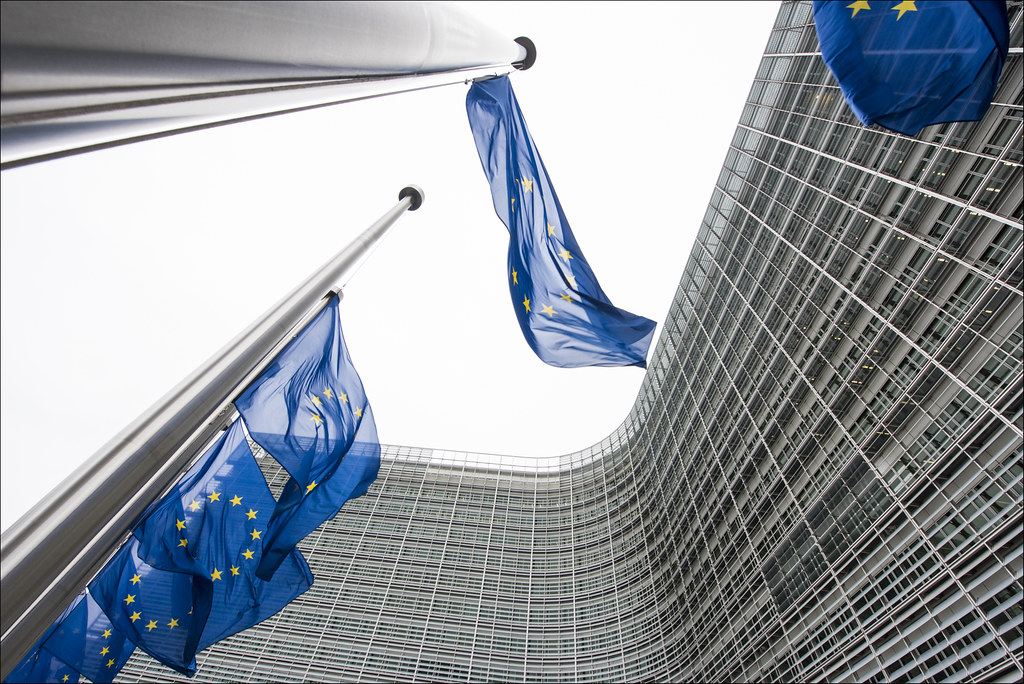The European Banking Authority (EBA), Europe’s key regulatory body overseeing the banking sector, has released two sets of guidelines aimed at improving compliance with the European Union’s restrictive measures, particularly for payment service providers (PSPs) and crypto-asset service providers (CASPs). On November 14, the EBA published guidelines that outline specific compliance procedures for PSPs and CASPs when it comes to transferring funds or crypto, ensuring they align with EU and national sanctions regimes.
The EBA stated that these guidelines aim to clarify the interaction between restrictive measures and financial institutions’ governance, risk management frameworks, and operational procedures. The purpose is to mitigate operational and legal risks for these institutions while ensuring that EU sanctions are properly enforced. The EBA explained:
“These Guidelines clarify how restrictive measures policies and procedures interact with financial institutions’ wider governance and risk management frameworks, to avoid operational and legal risks for financial institutions and ensure an effective implementation of restrictive measures.”
The EBA emphasized that weaknesses in controls, internal policies, and procedures can expose financial institutions, including PSPs and CASPs, to legal and reputational risks. These weaknesses could potentially undermine the effectiveness of the EU’s restrictive measures regimes, which are designed to address various geopolitical and financial concerns. If not properly managed, these weaknesses may allow entities or individuals to circumvent the rules, thus destabilizing the EU’s financial ecosystem.
The EBA’s warning underscores the critical importance of robust compliance frameworks. Inadequate adherence to these guidelines can result in severe consequences, ranging from regulatory penalties to damage to a firm’s reputation. The EBA also pointed out that such failures could lead to regulatory breaches that affect the overall stability of the financial system within the EU. The EBA’s new guidelines aim to address these concerns by mandating financial institutions to implement stricter oversight of their operations.
Timetable for Compliance
The new guidelines, which aim to enhance compliance with EU sanctions regulations, will come into effect on December 30, 2025. This gives PSPs and CASPs a window of time to adjust their internal systems, policies, and procedures to meet the new requirements. Financial institutions must establish reliable screening systems to comply with EU restrictive measures and minimize the risk of sanctions evasion.
The guidelines require PSPs and CASPs to adopt comprehensive screening protocols, ensuring they can effectively manage the risks associated with transferring funds or crypto. These measures will ensure that institutions can identify and mitigate potential violations of the EU’s restrictive measures, thus maintaining the integrity of the financial system.
The new guidelines are part of the broader legislative reforms implemented by the European Commission to strengthen the EU’s Anti-Money Laundering (AML) and Countering the Financing of Terrorism (CFT) framework. This reform, which was introduced in 2021, includes new regulations regarding the flow of information in fund and crypto transfers.
The regulations, which were adopted on June 9, 2023, will come into full effect on December 30, 2024. These rules aim to address growing concerns about the use of cryptocurrencies for illicit activities and to enhance the EU’s ability to counter money laundering and terrorism financing. As part of these reforms, the EBA is tasked with issuing guidelines to help financial institutions comply with the new regulations. These efforts are part of the EU’s ongoing push to tighten oversight of digital assets and ensure that financial institutions align with international standards.
EBA’s Focus on Compliance in Crypto Transfers
The EBA’s guidelines specifically target how PSPs and CASPs should approach screening and compliance when dealing with crypto transfers. These guidelines mandate that crypto service providers conduct thorough checks to ensure that transactions are not linked to sanctioned entities or individuals. By implementing these measures, the EBA aims to prevent the misuse of crypto assets for illegal activities, such as money laundering or terrorist financing.
Moreover, the guidelines ensure that PSPs and CASPs are equipped with the necessary tools to manage the risks of users circumventing restrictive measures. The EBA has emphasized the importance of integrating effective compliance systems within the broader governance and risk management frameworks of financial institutions. This is intended to create a robust compliance infrastructure capable of identifying and addressing potential threats and breaches before they occur.
| Guideline Focus | Deadline | Description |
|---|---|---|
| Screening Systems for Crypto Transfers | Dec. 30, 2025 | Institutions must implement systems to comply with EU sanctions |
| Compliance with EU Restrictive Measures | Dec. 30, 2025 | Financial institutions to ensure adherence to EU and national measures |
| Anti-Money Laundering and Terrorism Financing Rules | Dec. 30, 2024 | New regulations apply to fund and crypto transfers |
| EBA Guidelines for Financial Institutions | Ongoing | Issued to assist in adapting to new AML and CFT reforms |
The EBA’s newly published guidelines signify a growing effort by European regulators to control the flow of digital assets and ensure their compliance with EU sanctions. While these measures are necessary to prevent illegal activities and protect the integrity of the financial ecosystem, they also reflect the increasing importance of cryptocurrencies in the global financial landscape. As digital assets become more mainstream, their regulation must evolve to address emerging risks.
For crypto providers, these new guidelines mean they will have to invest in robust systems to ensure compliance, which could increase operational costs. However, these regulations also serve as an important step in legitimizing the crypto industry, allowing it to grow while mitigating the risks associated with illicit activity. As the crypto sector matures, finding the balance between innovation and regulatory compliance will be critical to its long-term success.












